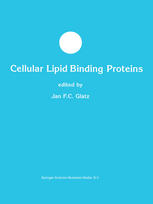

Most ebook files are in PDF format, so you can easily read them using various software such as Foxit Reader or directly on the Google Chrome browser.
Some ebook files are released by publishers in other formats such as .awz, .mobi, .epub, .fb2, etc. You may need to install specific software to read these formats on mobile/PC, such as Calibre.
Please read the tutorial at this link: https://ebookbell.com/faq
We offer FREE conversion to the popular formats you request; however, this may take some time. Therefore, right after payment, please email us, and we will try to provide the service as quickly as possible.
For some exceptional file formats or broken links (if any), please refrain from opening any disputes. Instead, email us first, and we will try to assist within a maximum of 6 hours.
EbookBell Team

4.4
22 reviewsIt is well established that cellular lipid binding proteins serve central roles in cellular lipid uptake and metabolism. Evidence has been presented that various metabolic diseases, such as hyperlipidemia, atherosclerosis, insulin resistance, and diabetes, are characterized by malfunctioning or deficiencies in cellular lipid binding proteins. For better understanding of the action of lipids as signaling compounds and the role of lipids in intermediary metabolism, it is essential to have detailed knowledge of the interactions between lipids and their cognant binding proteins. In view of this growing interest in lipid-protein interaction, the 4th International Conference on Lipid Binding Proteins was held in Maastricht, The Netherlands, in June 2001. The proceedings of the previous three meetings have been published in Molecular and Cellular Biochemistry. The present focused issue of Molecular and Cellular Biochemistry comprises selected papers based on the lectures and posters presented during the 4th conference, and provides insight into the significance of these proteins for the functioning of the cell.